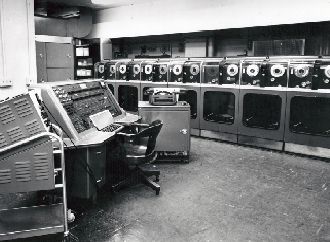News and Notes Roundup: March 30

It’s Monday, and that means we are here with our weekly tech roundup. March is coming to an end and the weather forecast is finally looking better. As we all prepare for the Final Four matches in college basketball and mourn our inevitably failing brackets, be sure to check out this week’s edition of the News and Notes Roundup. This week, we have reports from the UN and the World Bank on the importance of ICT in developing countries as well as a preview of the new Samsung S6 Edge smartphone.
This day in tech history, the first commercial computer, UNIVAC, was released in 1951. UNIVAC was originally used by US Census Bureau to hold all of the information the census requires. This is far from similar to the computers any of us use today. UNIVAC was a massive computer that weighs about 29,000 lbs and has a size that occupied 35.5 square meters, which caused its sale to be restricted to huge corporations and the US government. And the cost was just as big; individual units were sold at $1.3 million.
Popular Tech News:
- US drone strikes against the Islamic State in Iraq hinder nuclear deal with Iran
- Hollywood is forced to improve digital security to maintain secrecy on the set
- Sharing innovative technology is being adopted by the biggest companies in Silicon Valley
- A preview of Samsung’s new phones that are set for release next month
- Four years later, Japan contemplates re-opening nuclear facilities
ICT and Development
- A model of how ICTs pair up with global sustainability
- The legacy of the technology innovations that came from the Ebola outbreak
- The World Bank talks about the importance of social dimensions in development
- The United Nations reports on the potential of E-commerce in developing countries
- Who is being left behind in the digital revolution?
Mobiles
- Mobile literacy is a key barrier for women in the developing world
- Five innovations that are changing mobile health
- Education in Asia is open to increasing mobile technology in the classroom
- See how mobile tech is taking over transit technology
- Text messages are giving typically marginalized people a voice
